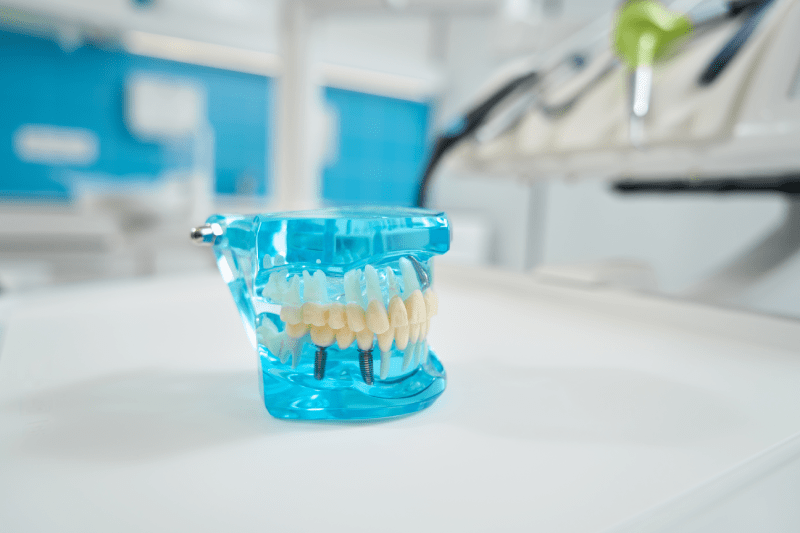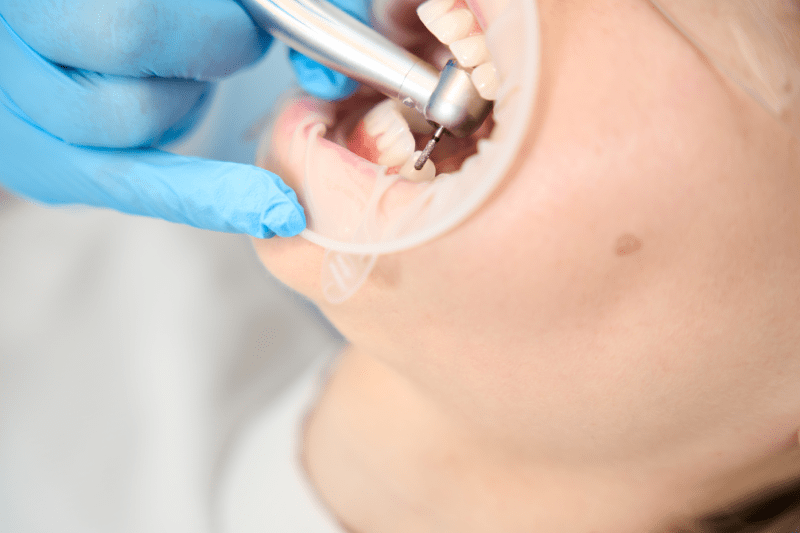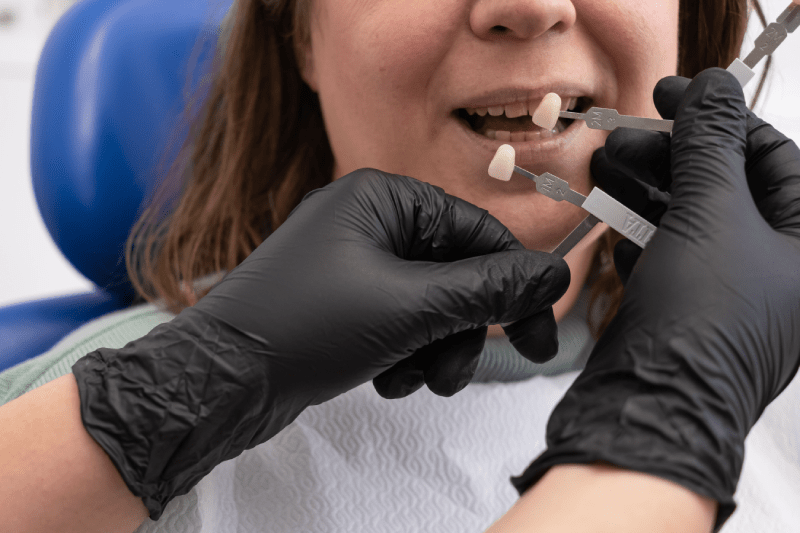Is Zirconia Better than Porcelain Crowns?
If you’re considering a crown treatment to restore your smile and protect your dental health, choosing between zirconia and porcelain crowns can be challenging. While both materials offer aesthetic and functional benefits, they differ in their structural properties and applications. This content aims to help you determine the most suitable option for you by providing a detailed comparison of these two types of crowns. For a personalized assessment and treatment plan, you can contact Cure Holiday.
What is a Zirconia Crown?
A zirconia crown is a dental veneer made from a non-metallic, white ceramic material called zirconium dioxide. This material is often preferred in modern dentistry due to its biocompatibility and superior durability. Zirconia offers a highly natural aesthetic appearance, very similar to natural teeth, thanks to its translucency.
What is a Porcelain Crown?
A porcelain crown is a type of veneer that covers the entire surface of the tooth, made from porcelain or a porcelain-metal alloy. Conventionally used porcelain-fused-to-metal crowns have a metal substructure for durability. All-porcelain crowns, on the other hand, offer a more natural aesthetic appearance as they do not contain metal.
What Are the Key Differences?
The biggest differences between zirconia and porcelain crowns are in their durability, aesthetic appearance, and biocompatibility. Zirconia crowns are much stronger and more resistant to chipping than porcelain crowns. Aesthetically, both materials can look natural; however, porcelain-fused-to-metal crowns carry a risk of a grayish line appearing at the gum line.
What Are the Advantages of Zirconia Crowns?
The main advantages of zirconia crowns are their exceptional durability and longevity. They are much more resistant to chewing forces compared to porcelain crowns, which makes them ideal for back teeth. Additionally, as they are a biocompatible material, the risk of allergic reactions is very low, and they integrate perfectly with gum tissues.

What Are the Disadvantages of Zirconia Crowns?
Zirconia crowns are generally more expensive than porcelain crowns. Also, because the material is very hard, if it’s not polished correctly, it can cause wear on the opposing teeth. This makes the dentist’s experience and the technology used in the process very important for a successful outcome.
What Are the Advantages of Porcelain Crowns?
The most significant advantage of porcelain crowns is their superior aesthetic appearance. Especially when used for front teeth, all-porcelain crowns mimic the translucency of natural tooth enamel, providing an excellent aesthetic result. Porcelain is also a biocompatible material that integrates well with gum tissues.
What Are the Disadvantages of Porcelain Crowns?
The biggest disadvantage of porcelain crowns is that they are less durable than zirconia and have a higher risk of chipping or cracking under chewing forces. With porcelain-fused-to-metal crowns, a grayish discoloration can appear at the gum line over time, which can lead to aesthetic issues.
For Which Teeth are Zirconia Crowns More Suitable?
Zirconia crowns are more suitable for back teeth due to their strength. They can withstand the intense pressure from chewing. They are also an ideal option for patients with teeth-grinding habits or those who generally have strong biting forces.
For Which Teeth are Porcelain Crowns More Suitable?
All-porcelain crowns are often preferred for front teeth where aesthetics are the main priority. They offer the closest translucency and shine to natural teeth. This allows for a flawless and natural-looking smile with porcelain crowns.
Are Zirconia Crowns More Expensive than Porcelain Crowns?
Generally, yes, zirconia crowns are more expensive than porcelain crowns. The primary reason is that zirconia is a more durable material and its manufacturing process requires more advanced technology. However, their longevity and resistance to chipping can make them a better long-term investment.
What is the Lifespan of Zirconia Crowns?
With proper care and regular check-ups, zirconia crowns can last for 10-15 years or even longer, and in some cases, they can be used for a lifetime. Their high durability allows them to remain intact and resistant to wear for a longer period compared to other types of crowns.
What is the Lifespan of Porcelain Crowns?
The lifespan of porcelain crowns is typically between 5-10 years, depending on the material used and oral hygiene habits. As they are not as durable as zirconia, the risk of chipping or cracking is higher, especially when chewing hard foods.
Do Zirconia Crowns Look Natural?
Yes, zirconia crowns look very natural due to their translucency and ability to be matched to the color of natural teeth. With advancements in aesthetic dentistry, zirconia crowns can now provide results that are just as natural-looking as porcelain crowns.
Do Zirconia Crowns Cause Gum Recession?
No, zirconia crowns are a biocompatible material and fit perfectly with gum tissues. Unlike porcelain-fused-to-metal crowns, they do not cause gum recession or a grayish discoloration. This helps in preserving the aesthetic and healthy appearance of the gums.
Is Crown Treatment Painful?
Crown treatment is performed under local anesthesia, so it is a painless procedure. You will not feel any pain during the process. After the treatment, a mild sensitivity or soreness that can last for a few days is normal and can be easily managed with prescribed pain relievers.
Which Material Carries a Risk of Allergic Reaction?
Porcelain-fused-to-metal crowns, due to the metal alloys they contain, may cause a reaction in individuals prone to allergies. Zirconia is a non-metallic and biocompatible material, so the risk of an allergic reaction is almost zero. This makes it the safest option for patients with metal allergies.
Does a Teeth-Grinding Habit Affect Crowns?
Yes, a teeth-grinding habit (bruxism) can damage crowns. For patients with this condition, zirconia crowns are more suitable because they are stronger and more resistant to chewing pressure than porcelain crowns. Your dentist may also recommend a protective night guard.
Do Zirconia Crowns Damage Other Teeth?
Since zirconia is a very hard material, if its surface is not polished well, it can cause wear on the opposing teeth. Therefore, the correct shaping and polishing of the crown are dependent on the dentist’s expertise. A skilled dentist will prevent such issues from occurring.
How Should Crowns Be Cleaned and Maintained?
Both zirconia and porcelain crowns require regular maintenance, just like natural teeth. Brushing twice a day, flossing, and attending regular dental check-ups are vital for extending the life of the crowns. Paying attention to oral hygiene helps keep the crowns healthy.
Are Zirconia and Porcelain Crowns Made in the Same Amount of Time?
The production process for zirconia crowns is slightly more complex and technology-driven than for porcelain crowns. However, with modern CAD/CAM technology, this process has been accelerated. The completion of both treatments generally requires a few days or up to a week, and this duration can vary depending on the patient’s case.
Which Is Better for Aesthetic Results on Front Teeth?
For the highest level of aesthetic result on front teeth, all-porcelain crowns are generally preferred. Thanks to their translucent quality, which is similar to natural tooth enamel, they reflect light in the best way. However, with advancements in zirconia technology, zirconia crowns can now also provide excellent aesthetic results for front teeth.
How Much Tooth Reduction is Needed for Crown Treatment?
For crown treatment, a certain amount of enamel must be removed from around the tooth. This amount depends on the thickness of the crown and how it fits. Generally, zirconia crowns can be made thinner, while porcelain crowns may require more tooth reduction.
Which Crown Is More Stain-Resistant?
Both zirconia and porcelain crowns are much more stain-resistant than natural teeth. However, zirconia crowns, with their smooth and non-porous surfaces, are almost unaffected by staining substances like tea, coffee, or cigarettes.
Which Crown is More Gum-Friendly?
Both zirconia and porcelain crowns are gum-friendly as they are biocompatible materials. However, porcelain-fused-to-metal crowns, due to their metal content, can cause irritation or discoloration of the gums over time. Therefore, metal-free crowns are more suitable for gum health.

Are Crowns Reversible?
Crown treatment is an irreversible procedure because it requires the removal of a portion of the tooth enamel. However, crowns can be replaced or repaired over time. Therefore, it is important to understand all the risks and long-term consequences before deciding on crown treatment.
Which Crowns Are Heavier?
Zirconia crowns can be a bit heavier than porcelain crowns due to their denser structure. However, this weight difference is usually not noticeable to the patient and does not affect chewing or speech function.
What Factors Affect the Price of a Crown?
Factors affecting the price of a crown include the type of material used, the brand of the crown, the number of teeth to be treated, the dentist’s experience, and the clinic’s location. More advanced materials like zirconia and well-known brands are generally more expensive.
Which Crowns Reflect Light Better?
Porcelain crowns, especially on front teeth, provide a superior aesthetic result because they reflect light translucently, just like natural tooth enamel. While the aesthetics of zirconia crowns have improved significantly in recent years, the natural transparency of porcelain is still the most imitated feature.
What Should I Pay Attention to After Crown Treatment?
After crown treatment, it is very important to follow your dentist’s maintenance instructions. Avoiding hard and sticky foods, brushing and flossing regularly, and attending routine dental check-ups extend the life of the crowns. Also, you should contact your dentist if you experience any sensitivity or discomfort.
Do Crowns Close Gaps in My Teeth?
Yes, crowns can close small gaps, correct shape irregularities, and cover cracks in teeth, providing an aesthetic solution. By covering the entire circumference of the tooth, they give it a complete form and ensure it is in harmony with the other teeth.
Which Material is More Resistant to Chipping?
Zirconia crowns are much more resistant to chipping compared to porcelain. This property makes them ideal for back teeth, which are exposed to strong chewing forces. Porcelain crowns, especially all-porcelain ones, are more brittle.
Are the Surfaces of Crowns Smooth?
Yes, the surfaces of both zirconia and porcelain crowns are smooth. This smooth surface makes it difficult for bacterial plaque to adhere and facilitates oral hygiene. Additionally, smooth surfaces provide better contact with natural teeth and improve chewing function.
Which Crowns Can Be Fabricated Faster?
Thanks to modern technology, both zirconia and porcelain crowns can be fabricated quickly. In clinics that use CAD/CAM technology, this process can even be completed in a single session. However, for more complex cases, the lab process can take a few days.
In What Cases Are Porcelain Crowns Preferred More?
Porcelain crowns are preferred, especially when correcting the color or shape of a single tooth and when aesthetics are the top priority. The natural translucency of porcelain allows a single tooth to integrate perfectly with the others.
Why Is Expert Advice Important in Choosing a Crown?
Expert advice is crucial for the success of crown treatment. A dentist will assess your oral health, needs, budget, and aesthetic expectations to provide you with a personalized treatment plan. An expert opinion helps you choose the right material and ensures long-term satisfaction.
For more information about zirconia and porcelain crowns and to create a personalized treatment plan, you can contact Cure Holiday.



